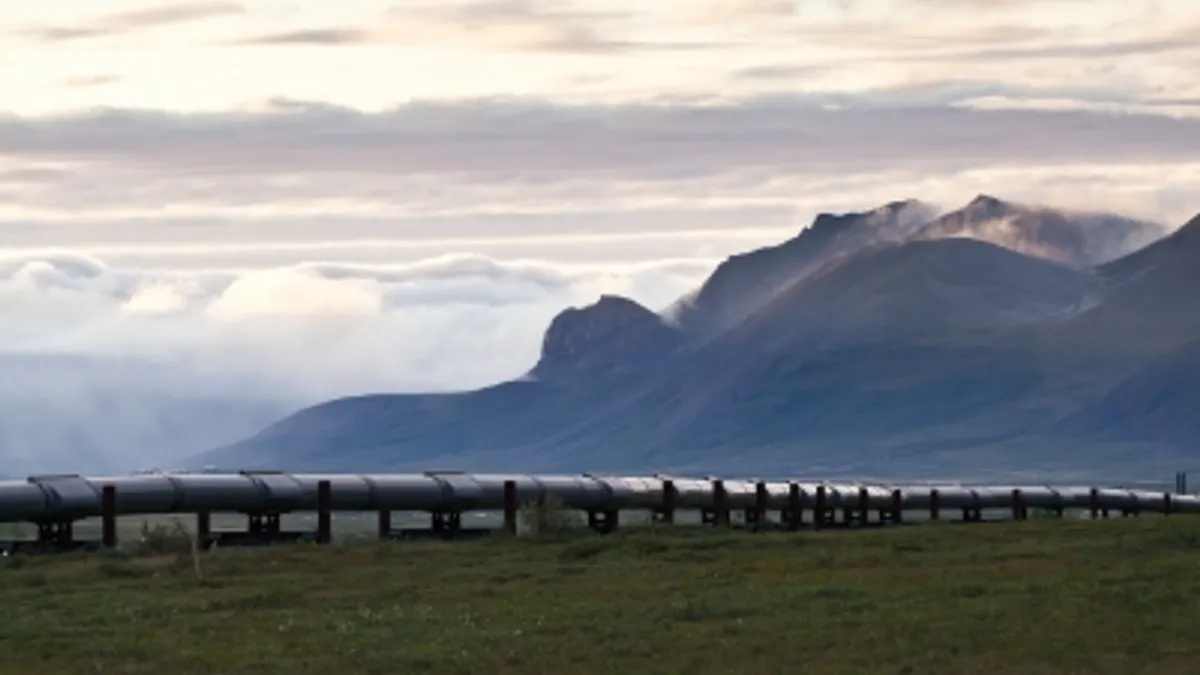Dive Brief:
- The Virginia Water Board on Tuesday voted to grant a water quality permit to the owners of the proposed $5 billion Atlantic Coast Pipeline, but made construction contingent on the completion and review of several additional ecological studies, according to media reports.
- The water regulators voted 4-3 to approve a 401 water quality certification under the Clean Water Act, but said construction could not begin until more erosion and sediment studies are done on the pipeline's proposed route. Those studies aren't due until March or April.
- Both environmentalists and the utility owners of the project declared the decision a victory. Opponents hope the additional studies will give regulators reason to stop the project, while the owners called approval of the 401 permit a "major milestone."
Dive Insight:
The proposed 600-mile Atlantic Coast Pipeline is at the center of the nation's swirling pipeline battles. Utility owners, including Dominion, Duke and Southern Co., say the pipeline is necessary to bring natural gas from West Virginia to demand centers in North Carolina and beyond.
Opponents, however, contend that the pipeline is not necessary and that its construction could harm fragile wetland environments and put water sources at risk from potential spills.
Virginia regulators gave neither side a full victory on Tuesday. Weighing whether to delay the decision further, the Richmond Times-Dispatch reports the water board only approved the pipeline's permit through a compromise amendment that would prevent it from going into effect until more ecological studies are completed.
The 401 permit will now be on hold until the state Department of Environmental Quality can review additional assessments of erosion and sediment control, stormwater management and testing on sensitive karst topography, officials said Tuesday.
The decision came the week after Virginia regulators approved another controversial project — the Mountain Valley Pipeline. Both projects were approved by the Federal Energy Regulatory Commission this autumn but required additional state permits to build.
Dominion had hoped to begin construction of the pipeline by year's end, but company officials put a positive spin on the delay on Tuesday. A spokesperson told the Washington Post that ACP had “the most thorough environmental review of any infrastructure project in Virginia history" and that the owners will work with the state “to complete all remaining approvals in a timely manner and ensure we meet all conditions of the certification.”
Activists, however, told the paper they would not stop if regulators eventually clear the project for construction.
“The next step is direct action," a local activist told the paper. "At this point, if they exhaust us of legitimate means, then we take it into our own hands.”













